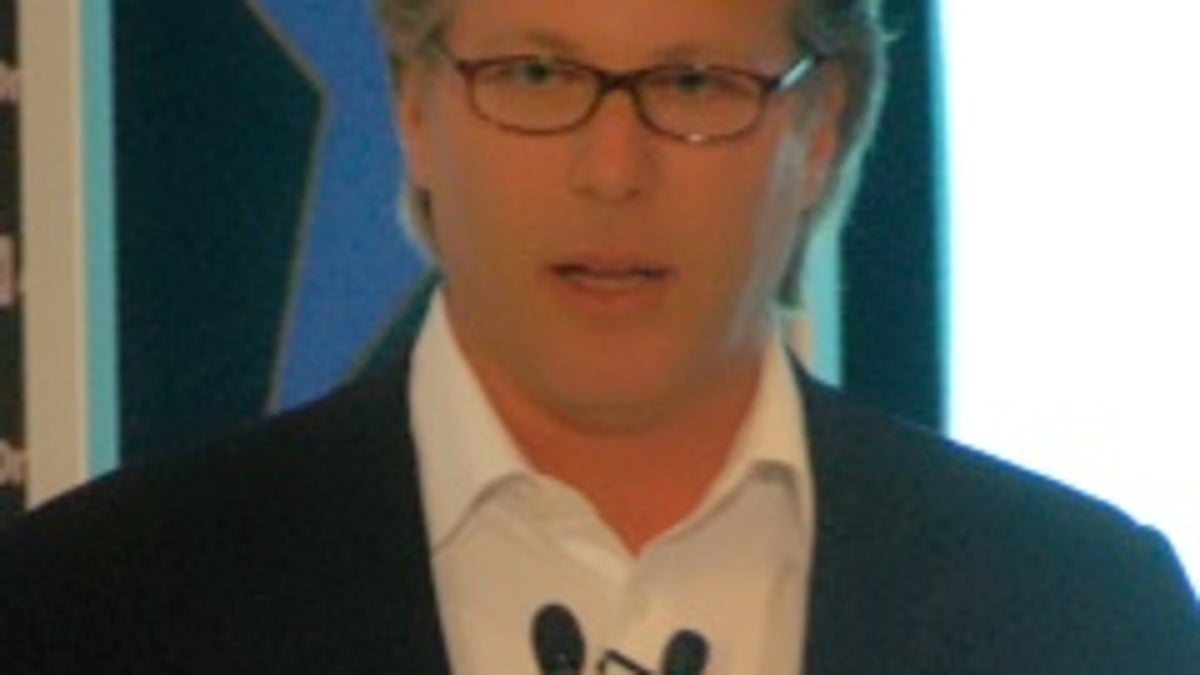Ross Levinsohn: Hollywood, as you know it, is dead
Is it time to bail out of Hollywood, or inject new thinking and capital into it? The former president of Fox Interactive Media tells conference goers it's time for fundamental change.

LOS ANGELES--Ross Levinsohn, former president of Fox Interactive Media and now partner at media venture firm Velocity Interactive, spoke to the execs at the OnHollywood conference here Tuesday to deliver a warning to the entertainment industry: "Take action now or be replaced."
The nut of his argument (and hardly news, to be fair) is that media consumption is changing dramatically. The old ways are dying: Newspapers are drying up. Magazine publishing is off. Music revenues are down. Even DVD sales are slowing. And the areas that are growing--content downloading and subscriptions--run at lower margins than the media they're replacing. So it's time for fundamental change.
The good news, he says, is that there are areas of growth: Google searching is up (56 percent year over year), video streams are up (45 percent) and new platforms like Twitter are way up (2,565 percent yearly growth, he said). Three-quarters of Internet users watch online videos every month. Also, three-quarters of the top iPhone apps are games. There is a robust new entertainment economy. It's just not the old entertainment economy.
Levinsohn's favorite numbers: "29 vs. 8," which is the percentage of media consumption time consumers spend online vs. the percentage of ad spending there. Dollars follow eyeballs, he says, and this indicates a huge money-making opportunity for online content. But the old regime in Hollywood will miss the money boat if it doesn't change fast.
He cautions that "If Hollywood chooses not to act now, there will be a whole new set of owners." Those owners: Google, Apple, Cisco, and the like. But do these tech companies want to own Hollywood?
During Levinsohn's talk, I twittered his warning and got a pretty fast @ reply back from Dan Scheinman, SVP of the Media Solutions Group at Cisco. He said, "Cisco does not want to own H'wood! We want to make it $$$." I followed up with him after the conference.
"We're here to build value for Hollywood," Scheinman told me. "We can bring the assets together in a way that helps media companies make money."
"Digitization and broadband are changing forever the consumer usage patterns. The consumer is far more in control," Scheinman said. Some in Hollywood are "trying to preserve existing business models while transitioning to the new world." He said that Cisco, "wants to work with these guys to work them through this," and by "work through this" I think he meant "help them to see the light and change course." But it was clear that Cisco is content to provide infrastructure technology to the entertainment industry. Scheinman doesn't want to see the Silicon Valley switch and router manufacturer in the middle of the content business.
Both Levinsohn and Scheinman quote Jeff Zucker of NBC Universal, who has famously said that in entertainment, analog dollars become digital dimes. Scheinman wants to help turn the tide on the lowering margins of entertainment content, and turn the digital content back into dollars. His prescription to reverse the course of declining margins has three steps:
1. Know the customers--something that's easier with metered and measured online delivery than it is with broadcast.
2. Technology needs to be an enabler, not a burden and not a threat. It's too expensive right now. Running Web sites, paying for bandwidth, and in some cases even paying the utility bills for new media technologies costs too much. Companies need to get aggressive about pushing the cost down.
3. Entertainment companies need to own their own data, which means opening a channel directly to consumers, even if there are middlemen distributors in the value chain.
At the beginning of his OnHollywood keynote, Levinsohn said that it "wouldn't be hard" to chart the correct course for the entertainment industry in the 15 minutes he was allotted to talk. Rather, in 15 minutes he very clearly laid out why the content industries need a financial reinvention. He was very precise about where Hollywood is leaking. Users are consuming content differently. But the important subtext was this: They're still consuming, and they'll still pay, either directly or through vehicles that monetize their attention, for quality entertainment and information.

